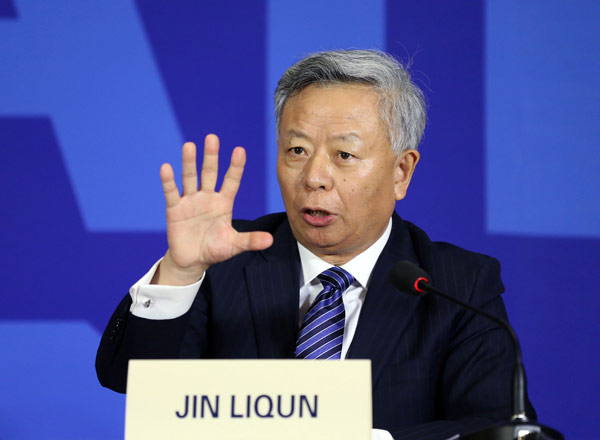New bank a supplement
(China Daily) Updated: 2016-01-18 07:48
 |
|
Jin Liqun, president of the Asian Infrastructure Investment Bank (AIIB), speaks at a press conference in Beijing, capital of China, Jan. 17, 2016. [Photo/China Daily] |
The Asian Infrastructure Investment Bank is not a product of narrow-minded geopolitical considerations. Nor should it be. Rather than a diplomatic success of China's, it is the success of every signatory.
China sees itself as a participant in, beneficiary of, and contributor to current international development mechanisms. Likewise by participating in and contributing to the AIIB, each party will benefit.
To live up to the high expectations it has inspired, the AIIB must prove its worth as a truly international, multilateral institution dedicated fully, faithfully to the region's development needs.
In part a response to dissatisfaction with the existing development financing regime, the AIIB must be more responsive, more efficient, and thus more effective. It must be transparent, cut red tape, follow international standards, and coordinate and cooperate well with other development financing institutions.
The presidents of the AIIB and Asian Development Bank have reportedly set parameters for their working relationship and agreed to co-finance projects.
Words about rivalry will collapse of themselves when co-financed projects are announced among the AIIB's first project loans in the middle of year.
The estimated $8-trillion infrastructure financing gap in Asia from 2010 to 2020 is beyond the capacity of the World Bank, ADB, and International Monetary Fund combined.
The AIIB is nothing but a welcome supplement. It has attracted signatories from near and far because it conforms to the needs and wants in the region and beyond.











